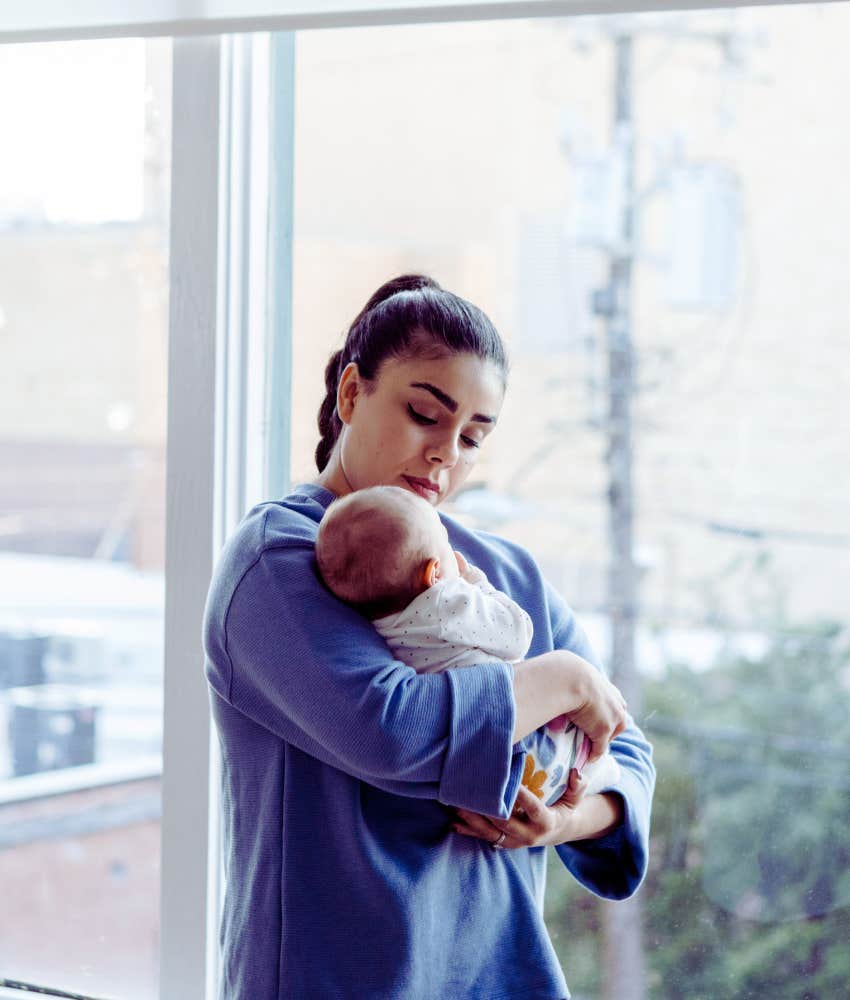Nanny Says She’s Fed Up With Parents Trying To Offer A Salary Instead Of Hourly Pay — ‘Pay Your Nanny For Every Hour Worked’
For a job that's portrayed as the most important work in the world, it sure doesn't pay enough.
 Dusan Petkovic / Unsplash
Dusan Petkovic / Unsplash It’s well-established that the U.S. is one of the most expensive countries for families, or anyone, really, to live in.
Daycare costs are the same as college tuition, inflation is still doing its thing, and wages haven’t gone up to level anything out.
Of all the jobs that deserve higher pay than what they get, nannying tops the list. Taking care of children is often framed as “the most important job,” yet a nanny’s average wage doesn’t reflect that sentiment.
A nanny said she’s fed up with parents offering a salary instead of hourly pay, declaring, ‘Pay your nanny for every hour worked.”
Sophia Grace Pagliuca is a nanny who advocates for adequate compensation and fair work conditions.
She vented her frustrations about families who hire her, then go on social media to say, “Our nanny didn’t do this, this, and this. We were really disappointed. We had higher expectations, but they’re paying $100 a week.”
“It’s illegal to pay a nanny a salary,” she exclaimed. “It is illegal to not give your nanny a W-2 and have them do a 1099. It is illegal to not pay your nanny for every hour that they worked.”
She declared, “This week has had me literally so fed up with this industry because it’s so unregulated.”
“Everyone is posting last-minute, looking for summer nannies, looking for next year, saying that they want to do a weekly amount, they want to do a flat rate or a salary. You cannot pay a household employee a salary.”
She explained one main reason why salaries are detrimental to household employees, saying, “Overtime abuse happens so much.”
 fizkes / Shutterstock
fizkes / Shutterstock
“If you’re being paid a salary, you don’t have any rules about overtime,” she said. “I genuinely believe that all these families that want to pay a nanny a salary just want to take advantage of their time.”
“When you’re a nanny, you have to be paid an hourly wage that you’ve agreed upon, but also, you must be paid for overtime if you go over 40 hours. If you’re on salary, that’s not happening,” she said.
“This kind of goes hand-in-hand with so many other things that are happening in the industry right now: People trying not to give out any types of benefits; they just want a nanny who will work for $12 an hour or $12 a day, and it’s just not appropriate. It’s not okay. It’s not right.”
What she didn’t say was what this behavior from parents actually is: exploitation, pure and simple.
The International Nanny Association notes that nannies and domestic workers are protected by the Federal Fair Labor Standards Act, which states that they should be paid hourly for all hours worked.
The federally set national minimum wage is $7.25 an hour, an amount that has gone unchanged since 2009. Some states have higher minimum wages than the federal wage, and nannies are entitled to be paid the higher sum.
Nannies who live outside their employers' homes should be paid overtime for any work beyond 40 hours a week, which is calculated at 1.5 times the regular rate.
 SDI Productions / Canva Pro
SDI Productions / Canva Pro
Caregiving is primarily women’s work, and it’s often done by immigrants and women of color, who are three times more likely to live in poverty than other workers.
The International Nanny Agency emphasized that an employer can’t retaliate against a domestic worker by turning them in for an immigration violation “for a workplace grievance such as a formal claim for unpaid wages, a complaint of criminal misconduct such as physical abuse, or a claim for workers compensation benefits.”
Yet nannies work in someone else’s home, behind closed doors, without oversight, which begs the question: Who’s ensuring that federal protections are met?
The National Domestic Workers Alliance has been organizing in support of a Domestic Workers Bill of Rights, declaring that caregiving work is a foundational part of the economy that deserves to be compensated fairly and protected.
There are about 2.2 million domestic workers in the U.S. doing essential labor that’s historically undervalued, rooted in a legacy of enslavement, and relegated to being low-paying.
A 2021 survey conducted by the NDWA found that 84% of domestic workers don’t have a written agreement with their employer, 76% don’t get paid if their employers cancel after they show up to work, and 23% report that they don’t feel safe at work.
Caregiving is demanding on a practical, physical, and emotional level.
Spending 40 hours or more alone with an infant, toddler, or both is exhausting. You tend to their every need, make sure they’re safe, and never turn your back or look away, even when you’re making lunch or washing their bottles. The naps they take, if they actually nap, offer barely enough time to catch your breath.
Yet so many people, parents included, believe nannying isn’t a real job worthy of respect, dignity, and sufficient income.
As Pagliuca noted, “It’s kind of just a really vicious cycle. There are people who will accept those terms: Being on salary, having no benefits, working an insane amount of hours a week for nothing, but the quality of care that people who will accept those terms provide is not good.”
 fizkes / Shutterstock
fizkes / Shutterstock
“People think that nannies will accept those terms, but they won’t and they’re upset that somebody does and they’re not who they wanted them to be,” she said, highlighting the importance of setting expectations on both the parents’ side and caregivers’ side before any job is agreed upon.
“If you can’t afford a nanny, you can’t afford a nanny, and that’s okay,” she concluded, making a hugely valuable point.
In a separate post, Pagliuca explained why nannies are luxuries that not every family can afford.
She responded to a comment someone left, tearing her down by saying, “Nanny acting like she should be paid [a] CEO salary and treated like a queen,” before declaring that Pagluica had “No idea how hard it is for people with kids to make ends meet.”
Pagliuca shared her “hot take that really shouldn’t be,” which is that “People shouldn’t be having children before thinking about how much it is to raise them.”
The reality of the issues at play is nuanced, and neither Pagliuca nor the stranger who thinks she’s asking too much is entirely wrong.
It does cost an exorbitant amount of money to have kids in the U.S., yet that doesn’t give parents permission to pay caregivers less than a living wage to do such important labor.
Pagliuca clapped back, saying, “I don’t know what this person is talking about by ‘CEO salary’ because I’m advocating for nannies to not be paid less than $25 an hour,” which comes out to $52,000 a year.
“Whatever CEO is being paid $52,000 is beyond me; I’ve never heard of that,” she said. There are a lot of nannies who do get paid six figures a year; I’m not advocating for every nanny to get paid six figures.”
“If people are wanting to have children and wanting them to have privatized care, they need to think about those costs prior to having children,” she said, clarifying that she was in no way saying that poor people shouldn’t have kids.
“I grew up poor. I was totally fine,” she said. “Having a nanny and privatized care is a luxury. It’s not available to everyone. It is not affordable for everyone.”
 lostinbids / Canva Pro
lostinbids / Canva Pro
She acknowledged that while she doesn't have any idea how hard it is for parents to survive financially, she does know “How hard it is to live without kids in this economy and take care of just myself, which is why I advocate for nannies to make a living wage, so they can literally just live.”
“I am treated like a queen by all the families I work for and I would advocate for nothing but that,” she said, and rightfully so.
There's no doubt that children are precious entities who deserve the best, just as there's no doubt that caregivers should be treated like the royalty they are.
Alexandra Blogier is a writer on YourTango's news and entertainment team. She covers social issues, pop culture, and all things to do with the entertainment industry.

